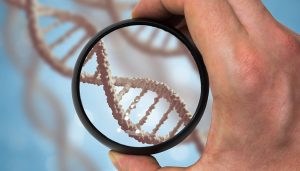 Early detection of cancer greatly increases the likelihood of successful treatment. Despite this, the traditional steps in obtaining a diagnosis are time consuming. Patients will typically need to undergo a series of tests to identify what is causing their symptoms. Medical professionals run these tests all at once in order to receive the results as quickly as possible. However, running a multitude of tests is expensive and time consuming. Many tests will yield negative results while costing hundreds to thousands of dollars. Additionally, these tests can take weeks to generate results, often delaying cancer diagnoses and treatment. Luckily, in an age of great technological and medical advancements, some patients are now able to receive a diagnosis earlier by the use of precision medicine.
Early detection of cancer greatly increases the likelihood of successful treatment. Despite this, the traditional steps in obtaining a diagnosis are time consuming. Patients will typically need to undergo a series of tests to identify what is causing their symptoms. Medical professionals run these tests all at once in order to receive the results as quickly as possible. However, running a multitude of tests is expensive and time consuming. Many tests will yield negative results while costing hundreds to thousands of dollars. Additionally, these tests can take weeks to generate results, often delaying cancer diagnoses and treatment. Luckily, in an age of great technological and medical advancements, some patients are now able to receive a diagnosis earlier by the use of precision medicine.
What is precision medicine?
Precision medicine is an emerging approach for disease treatment and prevention that considers individual variability in genes, environment, and lifestyle for each person. By gaining a deeper understanding of an individual’s biological makeup, including information coded in their DNA, medical professionals are able to offer a more tailored and precise way of diagnosing and treating diseases like cancer. The goal is that precision medicine will one day tailor cancer treatment to the genetic changes in each individual’s cancerous cells. Though treating each cancer diagnosis using precision medicine is a long way in the future, it is possible to benefit from precision medicine today.
How does precision medicine work?
There are few times in the medical field where a one-size-fits-all approach is successful. Despite this, the current standard cancer treatment is something of a blanket approach itself. Cancer patients often undergo surgery, chemotherapy treatment, radiation therapy, or a combination thereof. Instead of treating cancer based on the location, be it in the breast, colon, or brain, precision medicine treats the specific genetic change. Cancer is caused by genetic changes in cells, which then go on to divide and spread the disease. Using precision medicine allows patients to be treated at a molecular level. This medication targets the precise genetic mutation, rather than giving treatment based on the location of the cancer.
What are the benefits of precision medicine?
Treating a genetic mutation with precision medicine opens the door to great advancements in the cancer field. Use of precision medicine will allow for earlier detection of mutations, allowing some cancers to be detected earlier or even prevented. For example, if someone has a family history of ovarian cancer, that individual can be tested for the genetic mutation that is responsible for the disease. This gives that individual the opportunity to diagnose and treat the cancer before there are any symptoms. This shifts the cancer paradigm to prevention rather than reaction. Understanding one’s unique genetic makeup can help predict their susceptibility to the disease, improve detection, and customize disease-prevention strategies. This will also help medical professionals prescribe more effective drugs along with predicting side effects and avoiding drugs with adverse side effects. One of the greatest benefits of precision medicine is its ability to reduce time and cost associated with current testing, as well as eliminating the current trial-and-error approach to diagnosis.
Is precision medicine just for cancer?
The short answer is no. The short-term goal for precision medicine is focused around cancer treatment. However, the long-term goal is to expand precision medicine to all areas of health. Currently, the National Institute of Health is recruiting over a million participants for a research program called All of Us. The All of Us research program is aiming to build one the largest datasets to be used in precision medicine research. The information gathered in this research initiative will allow researchers to learn more about how individual differences in lifestyle, environment, and biological makeup can influence health and disease.
Categories: NEWS

